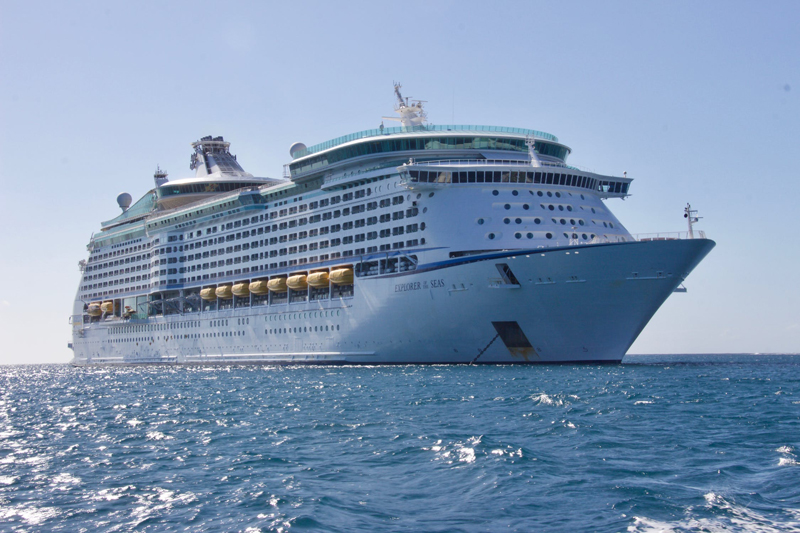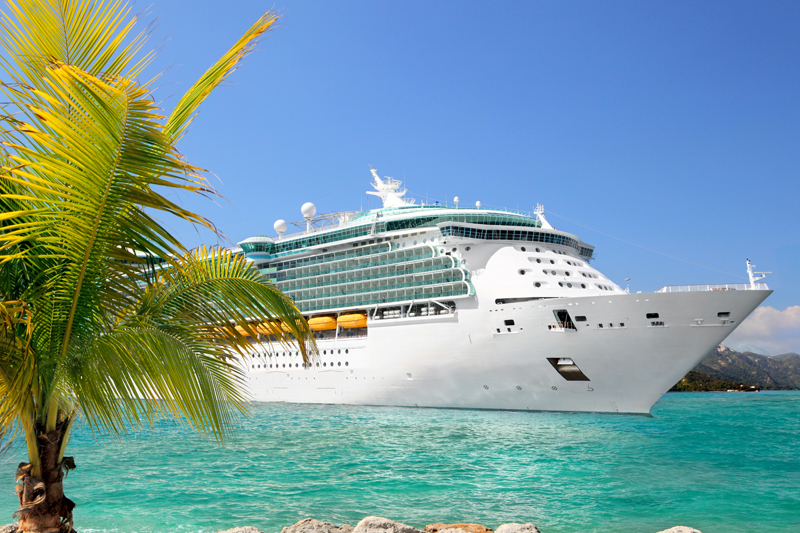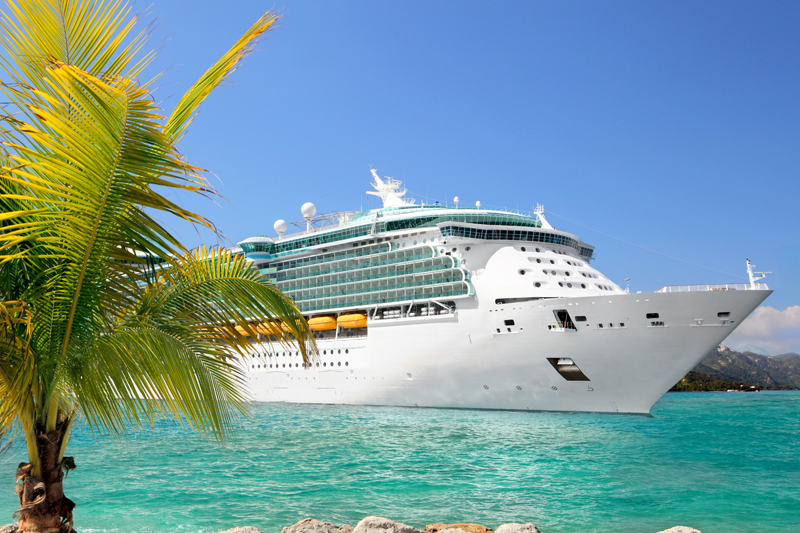10 First Time Cruise Mistakes To Avoid

Cruise vacations are a bit different than your typical land-based trip. For first-time cruisers, planning their vacation can be a bit overwhelming. Here are ten of the most common mistakes first-time cruisers make and some tips on how to avoid them:
1. Not Using A Travel Agent. Using a great cruise travel agent can help first-time cruisers avoid the remaining nine mistakes on this list. The right cruise travel agent understands the differences between cruise lines, specific ships and their amenities, as well as the various itineraries available. A knowledgeable agent will help select the ship, itinerary, flights and stateroom that's best suited for your needs. In addition, they are aware of differing cruise line policies and can provide tips and suggestions that will improve your vacation enjoyment.
2. Choosing the Wrong Ship or Itinerary. It’s important to understand the ship and its amenities, the types of vacationers it attracts, and the itinerary on which you’ll be sailing. Many vacationers like to cruise with individuals who are somewhat like themselves. Certain cruise lines and ships tend to attract lots of families with children, while older guests gravitate towards others. In addition, cruise itineraries include a varying number of in-port and sea days, so choose the option that best fits your preferences. Some people find “at sea” days boring, while others relish the chance to relax and unwind on their floating resort. Think about what you’re looking forward to on your cruise and talk with your travel agent about the right ship and itinerary for you.
3. Picking Bad Flights. It’s important to choose the right flights in order to avoid nail-biting stress or possibly even missing your ship. Direct flights can be more expensive, but that’s not always the case. Use a good travel agent or book your flights immediately after you purchase your cruise for the best results. If connecting flights are mandatory for your cruise, make sure to allow plenty of time for connections. Try to arrive at your port of embarkation the day before your ship leaves to avoid complications.
4. Making a Poor Cabin Choice. Selecting the right stateroom can make a huge difference in cruise enjoyment. Study your ship’s deck plans before reserving your cabin. Look for a quiet room away from noisy areas like elevators, lounges, atriums and children’s program facilities. Thoroughly review the deck layouts above and below the cabin you’re considering to see what’s located over and under your room. Avoid booking staterooms above or below nightclubs, theaters, bars with live music, crew work areas, self service laundries, sports venues, kitchens, and the main dining rooms and buffet areas. Some frequent cruise guests also shun staterooms right below the ship’s pool to avoid the early morning sound of lounge chairs being arranged on deck.
5. Forgetting to Check on Documentation. As soon as you begin thinking about taking a cruise, double check the documents needed for the trip. If you do not have the right documentation for your cruise, you will be denied boarding. Check directly with the cruise line or your travel agent to see exactly what’s required. In addition, look carefully at the expiration date on your passport. Many cruise lines now require passports to be valid for at least six months after the time your cruise is over. Certain countries insist on that as well. If you’re traveling with children, there may be additional documents you are required to bring. Single parents or a married parent traveling solo with their children may need a notarized letter from the other parent giving permission for the trip. This requirement can also apply to grandparents traveling without their grandchildren’s parents and parents bringing along a child's friend on a cruise.
6. Ignoring the Weather and Holiday Periods. Carefully consider the aspects of cruising that are most important to you. First-timers choosing their cruise primarily on the basis of the ship’s itinerary and ports of call should research weather carefully and avoid hurricane season. The same is true for selecting the best week for your cruise. If you want to cruise when there are fewer children on your ship, stay away from spring break periods, summer months and holiday seasons. If you're cruising with children, however, those can be the best times to sail.
7. Neglecting Port Planning. Popular ship-sponsored tours often sell out well before departure. Research each of your ports of call before your cruise and review the shore excursions being offered by your cruise line and independent operators. If there are several that will make or break your cruise experience, book them immediately.
8. Passing on Travel Insurance. Vacation insurance can protect your financial investment (in most cases) against such things as having to cancel your cruise due to illness or a death in your immediate family, trip interruption due to illness, missing the ship due to airline delays, and other factors. It will also cover medical attention should you need it while you are away. Consider purchasing cruise insurance from a third party, since it allows you to wrap in your airfare if you purchased it independently. Read all policies carefully before purchasing and ask questions to make sure you are covered for all contingencies.
9. Packing Incorrectly. Cruise ship staterooms are relatively small, so avoid overpacking for your cruise. In addition, make sure to pack your cruise documents, passports, prescription medicines and other essential items in your carry-on luggage. You might want to pack at least one change of clothes and perhaps a bathing suit in your carry-on bag as well. That way, you won’t have major problems if your luggage is delayed or lost.
10. Not Staying On Ship’s Time. The difference between “ship’s time” and “local time” can be very confusing for first-time cruisers. Some ships change the time on board as they sail through different time zones. Passengers are told to set their watches forward or backward the night before the change and the clocks on the ship will reflect the new time as well. In other cases, however, the ship remains on its home port time zone throughout the journey. In that situation, the “ship’s time” is not the same as “local time.” To ensure that you don’t miss your ship, check what time the ship is using in each port of call. Ask again before getting off the ship, check your watch to make sure it’s set correctly, and double check what time you need to be back on board. Also bring your daily newsletter when going ashore, since it lists the all aboard time and the name of your ship's port emergency contact.
1. Not Using A Travel Agent. Using a great cruise travel agent can help first-time cruisers avoid the remaining nine mistakes on this list. The right cruise travel agent understands the differences between cruise lines, specific ships and their amenities, as well as the various itineraries available. A knowledgeable agent will help select the ship, itinerary, flights and stateroom that's best suited for your needs. In addition, they are aware of differing cruise line policies and can provide tips and suggestions that will improve your vacation enjoyment.
2. Choosing the Wrong Ship or Itinerary. It’s important to understand the ship and its amenities, the types of vacationers it attracts, and the itinerary on which you’ll be sailing. Many vacationers like to cruise with individuals who are somewhat like themselves. Certain cruise lines and ships tend to attract lots of families with children, while older guests gravitate towards others. In addition, cruise itineraries include a varying number of in-port and sea days, so choose the option that best fits your preferences. Some people find “at sea” days boring, while others relish the chance to relax and unwind on their floating resort. Think about what you’re looking forward to on your cruise and talk with your travel agent about the right ship and itinerary for you.
3. Picking Bad Flights. It’s important to choose the right flights in order to avoid nail-biting stress or possibly even missing your ship. Direct flights can be more expensive, but that’s not always the case. Use a good travel agent or book your flights immediately after you purchase your cruise for the best results. If connecting flights are mandatory for your cruise, make sure to allow plenty of time for connections. Try to arrive at your port of embarkation the day before your ship leaves to avoid complications.
4. Making a Poor Cabin Choice. Selecting the right stateroom can make a huge difference in cruise enjoyment. Study your ship’s deck plans before reserving your cabin. Look for a quiet room away from noisy areas like elevators, lounges, atriums and children’s program facilities. Thoroughly review the deck layouts above and below the cabin you’re considering to see what’s located over and under your room. Avoid booking staterooms above or below nightclubs, theaters, bars with live music, crew work areas, self service laundries, sports venues, kitchens, and the main dining rooms and buffet areas. Some frequent cruise guests also shun staterooms right below the ship’s pool to avoid the early morning sound of lounge chairs being arranged on deck.
5. Forgetting to Check on Documentation. As soon as you begin thinking about taking a cruise, double check the documents needed for the trip. If you do not have the right documentation for your cruise, you will be denied boarding. Check directly with the cruise line or your travel agent to see exactly what’s required. In addition, look carefully at the expiration date on your passport. Many cruise lines now require passports to be valid for at least six months after the time your cruise is over. Certain countries insist on that as well. If you’re traveling with children, there may be additional documents you are required to bring. Single parents or a married parent traveling solo with their children may need a notarized letter from the other parent giving permission for the trip. This requirement can also apply to grandparents traveling without their grandchildren’s parents and parents bringing along a child's friend on a cruise.
6. Ignoring the Weather and Holiday Periods. Carefully consider the aspects of cruising that are most important to you. First-timers choosing their cruise primarily on the basis of the ship’s itinerary and ports of call should research weather carefully and avoid hurricane season. The same is true for selecting the best week for your cruise. If you want to cruise when there are fewer children on your ship, stay away from spring break periods, summer months and holiday seasons. If you're cruising with children, however, those can be the best times to sail.
7. Neglecting Port Planning. Popular ship-sponsored tours often sell out well before departure. Research each of your ports of call before your cruise and review the shore excursions being offered by your cruise line and independent operators. If there are several that will make or break your cruise experience, book them immediately.
8. Passing on Travel Insurance. Vacation insurance can protect your financial investment (in most cases) against such things as having to cancel your cruise due to illness or a death in your immediate family, trip interruption due to illness, missing the ship due to airline delays, and other factors. It will also cover medical attention should you need it while you are away. Consider purchasing cruise insurance from a third party, since it allows you to wrap in your airfare if you purchased it independently. Read all policies carefully before purchasing and ask questions to make sure you are covered for all contingencies.
9. Packing Incorrectly. Cruise ship staterooms are relatively small, so avoid overpacking for your cruise. In addition, make sure to pack your cruise documents, passports, prescription medicines and other essential items in your carry-on luggage. You might want to pack at least one change of clothes and perhaps a bathing suit in your carry-on bag as well. That way, you won’t have major problems if your luggage is delayed or lost.
10. Not Staying On Ship’s Time. The difference between “ship’s time” and “local time” can be very confusing for first-time cruisers. Some ships change the time on board as they sail through different time zones. Passengers are told to set their watches forward or backward the night before the change and the clocks on the ship will reflect the new time as well. In other cases, however, the ship remains on its home port time zone throughout the journey. In that situation, the “ship’s time” is not the same as “local time.” To ensure that you don’t miss your ship, check what time the ship is using in each port of call. Ask again before getting off the ship, check your watch to make sure it’s set correctly, and double check what time you need to be back on board. Also bring your daily newsletter when going ashore, since it lists the all aboard time and the name of your ship's port emergency contact.

Related Articles
Editor's Picks Articles
Top Ten Articles
Previous Features
Site Map
Content copyright © 2023 by Nancy Schretter. All rights reserved.
This content was written by Nancy Schretter. If you wish to use this content in any manner, you need written permission. Contact Nancy Schretter for details.







